The 5 Worst Diets for Weight Loss
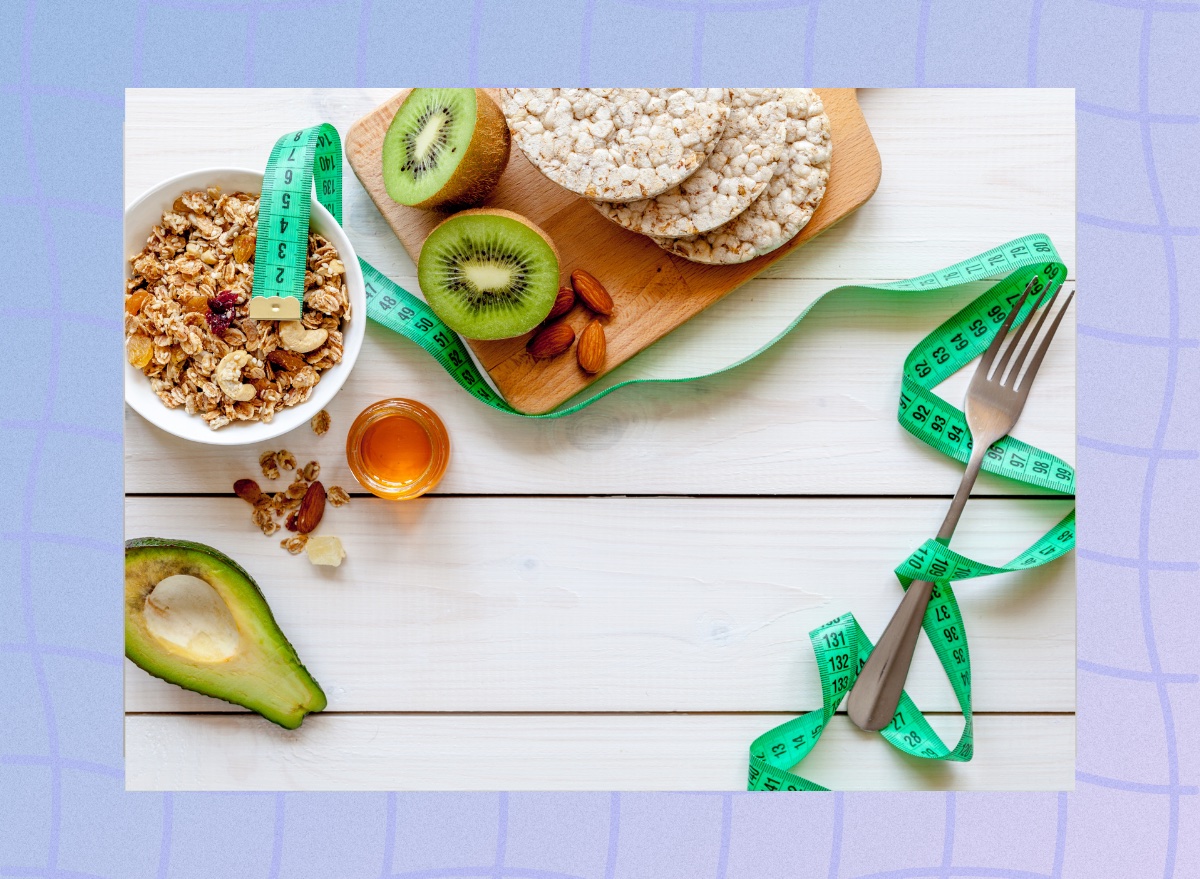
If you’re spending valuable time trying to achieve a certain weight-loss goal, ensuring what you’re doing is right for you and your body is imperative. Part of that planning process includes being fully informed on what not to do. That’s why we spoke with Amy Shapiro, MS, RD, CDN—the founder and director of Real Nutrition, a New York City-based private practice dedicated to healthfully and successfully guiding clients to their optimal nutrition, weight, and overall wellness, to learn the five worst diets for weight loss, along with more productive alternatives.
Keep reading to learn more, and when you’re finished, don’t miss The #1 Best Breakfast Food To Buy at Costco for Weight Loss.
These are the worst diets for weight loss:
1. Juice Cleanse
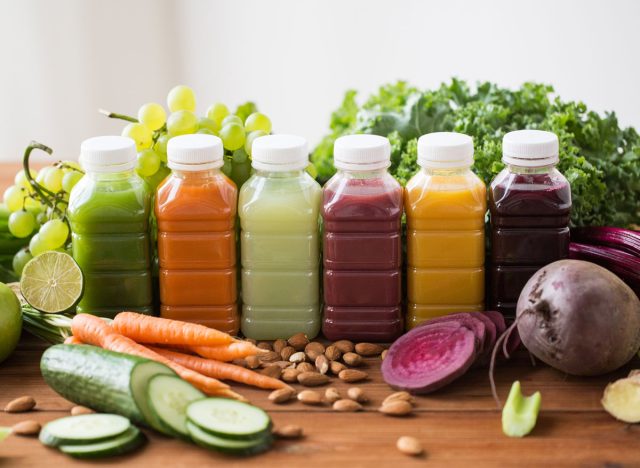
If you’re curious about testing out a juice cleanse, you may want to reconsider. Juice cleanses are typically chock-full of sugar and don’t contain much fiber or protein.
Shapiro tells us, “[Juice cleanses] can lead to unstable blood sugar levels, muscle loss, and a slowed metabolism. [They also] lack essential nutrients and [are] not sustainable for long-term weight loss.”
2. hCG Diet
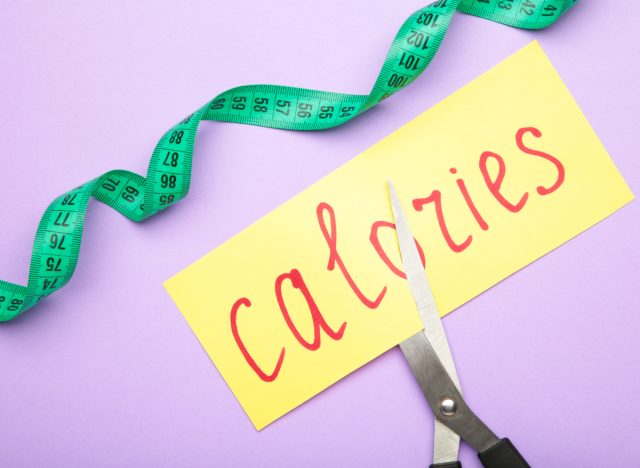
The hCG diet takes calorie restriction to the extreme. Shapiro explains that this diet allows the consumption of just 500 to 800 calories each day, along with taking human chorionic gonadotropin (HCG) hormone supplements, which are usually taken by injection.
“[There is] no scientific evidence to support the effectiveness of HCG in weight loss,” Shapiro adds. “Very low-calorie diets can be dangerous and lead to nutrient deficiencies, muscle loss, and slow metabolism. [There are] potentially dangerous side effects and [this diet is] not sustainable in the long-term.”
3. Ketogenic Diet
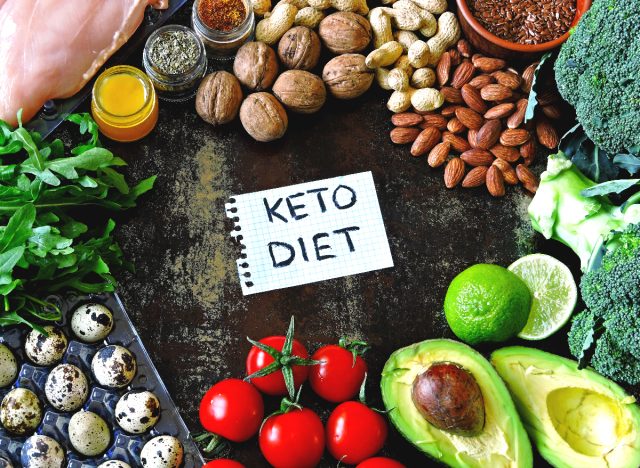
The ketogenic diet is all about eating high-fat and low-carb foods to torch fat for fuel rather than carbs.
“[The] long-term effects/safety are still under debate,” Shapiro tells us. “[This diet may also be] difficult to sustain due to extreme carbohydrate restrictions. [It] may lead to nutrient deficiencies, constipation, and an increased risk of heart disease due to high intake of saturated fats.”
4. Raw Food Diet
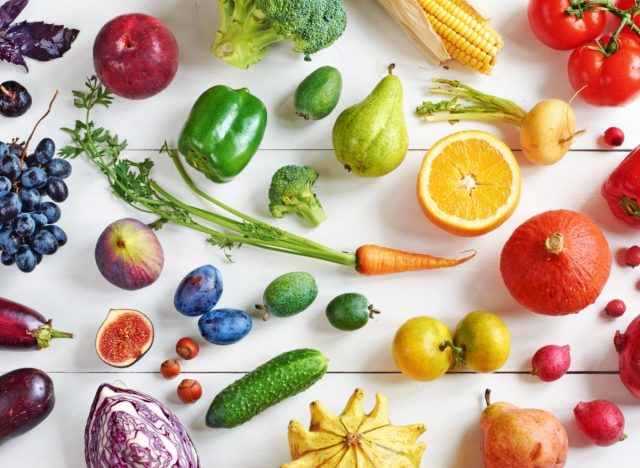
Following a raw food diet requires you to only consume uncooked items such as fruits, raw veggies, seeds, and nuts. In addition, the diet doesn’t allow processed foods or any items that are cooked.
Shapiro warns, “[The raw food diet is] challenging to follow and likely will result in nutrient deficiencies, especially in protein, vitamin B12, and calcium. [It’s] dangerously low in calories which can lead to inadequate energy intake.”
5. Atkins Diet
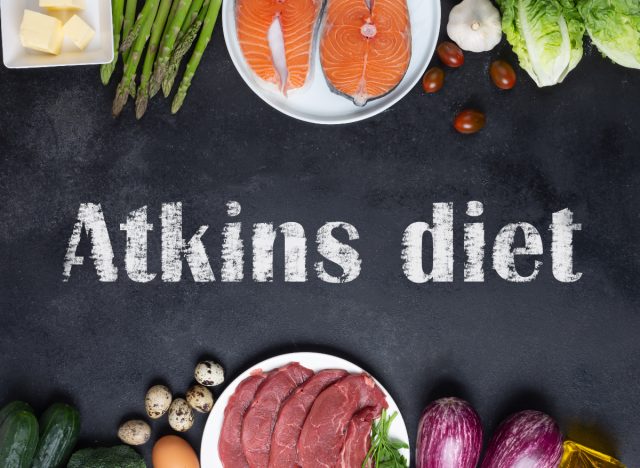
The Atkins diet is all about consuming high levels of fat and protein and limiting carbs.
Shapiro tells us, “[It’s] very strict in terms of what you can and cannot eat. Studies show that it may be effective for weight loss in the short term but not in the long term and that most people regain the weight back down the line.”
Here are three healthy alternatives to consider for weight loss:
Now that you know some of the worst diets for weight loss, according to a registered dietitian, here are three better alternatives that Shapiro highly recommends.
1. Mediterranean Diet
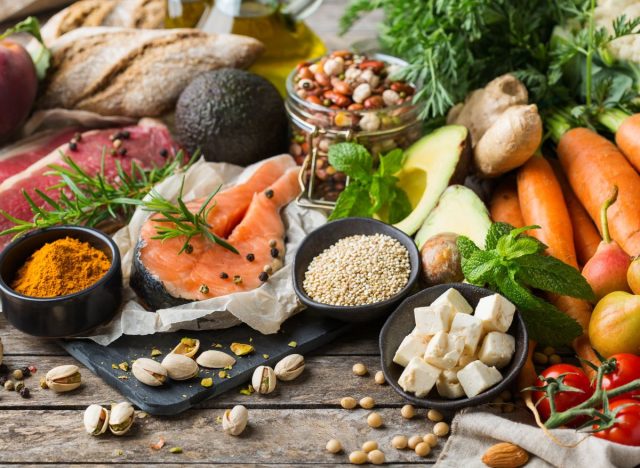
The very popular Mediterranean diet shines a spotlight on fresh veggies, fruits, whole grains, nuts, olive oil, fish, and a touch of meat and dairy. What makes this diet so healthy is it helps to fight oxidative stress and inflammation, regulates blood sugar, and lowers cholesterol and blood pressure, Shapiro points out.
2. DASH Diet (Dietary Approach to Stop Hypertension)
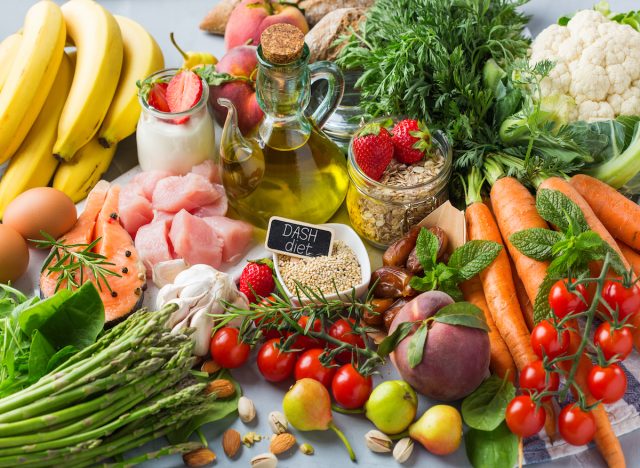
The DASH diet emphasizes whole foods like veggies, fruits, whole grains, low-fat or fat-free dairy, and lean proteins.
“[This diet stresses] cutting back on processed foods such as sugary drinks and packaged snacks, and limiting red meat consumption. [It’s a] sustainable, well-rounded approach to eating which includes all essential nutrients—carbohydrates, protein, and fat—and limits processed foods but is not restrictive in terms of consuming an adequate amount of calories and nutrients for your body.”
3. Mindful Eating
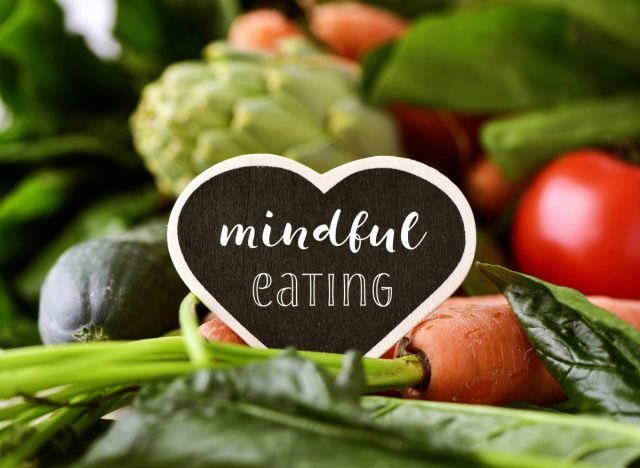
This last tip is for individuals who don’t really want to follow a diet, but rather make healthy tweaks to their eating habits.
“Overall, stay hydrated, eat mindfully, control your portion sizes, get enough sleep, and make sure to consume breakfast every day,” Shapiro recommends. “Research shows that consuming breakfast regularly is associated with lower levels of obesity and being overweight because breakfast fills you up and ensures you are less likely to experience hunger more frequently throughout the day which likely would result in snacking on high-energy, high-fat processed foods.”









